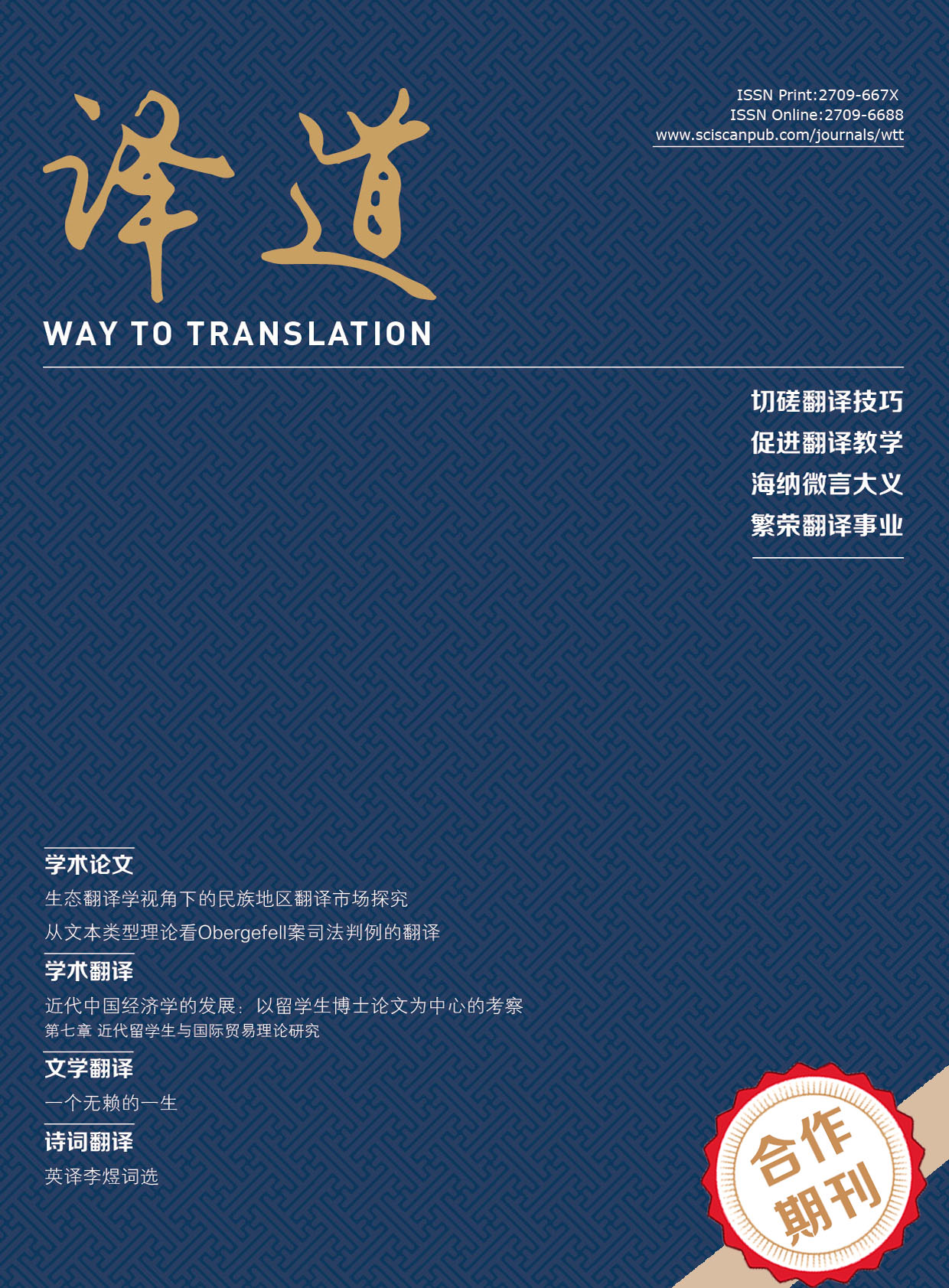Way to Translation
ISSN Print: 2709-667X
ISSN Online: 2709-6688
Contact Editorial Office
Subscribe to the latest published information from SCISCAN
降格的普罗米修斯——《弗兰肯斯坦》中的现代性困境
Prometheus of Degradation—The Modernity Predicament in Frankenstein
- Authors: 艾士薇 王梦潇
-
Information:
武汉大学文学院,武汉
-
Keywords:
Frankenstein; Mary Shelley; Prometheus; Modernity《弗兰肯斯坦》; 玛丽·雪莱; 普罗米修斯; 现代性
- Abstract: The subtitle of Frankenstein, “or the Modern Prometheus”, is quite meaningful. The fourfold image of the traditional Prometheus as “man-maker” “fire-stealer” “seeker of knowledge” and “rebel” becomes fluid references in Mary Shelley’s text. These four images are forced to degrade in the modern context: the Creator becomes the Demon of creation in the era of disenchantment with religion and enchantment with science; with increased individualism and a shift towards punishment, the fire thief evolves into “electricity thief” (Victor) and “magnetism thief” (Walton) ; the enchantment of instrumental reason turns “knowledge seekers” into “knowledge abusers”; for the rebels, critical reason gives them the courage to challenge authority, but the overemphasis on subjectivity makes them forget their own limitations, which leads them to fall from being martyrs for justice into the ranks of violent revolutionaries. ἀe reshaping of the fourfold image of Prometheus shows Mary Shelly’s revelation of modernity predicament. Her use of the word “modern” to refer to “modernity”, not only is groundbreaking in the history of literature, but also ahead the intensive discussion of modernity in the field of philosophy. 作品书名采用音译的《弗兰肯斯坦》,其副标题“现代普罗米修斯”颇具深意。传统普罗米修斯的“造人者”“盗火者”“求索者”“反叛者”四重形象,在玛丽·雪莱的文本中成为流动的指涉。四种形象在现代语境下被迫降格:造物主在宗教祛魅和科学赋魅的时代走向造物魔;随着个人主义的加剧和惩罚方式的转变,盗火者演变为“盗电者”维克多和“盗磁者”沃尔顿;工具理性的魔魅化则让“知识求索者”坠为“知识滥用者”;对于“反叛者”们而言,批判理性赋予他们挑战权威的勇气,但主体性的高扬让他们忘却了自身的局限,这让他们从正义殉道者堕入暴力革命者的行列。普罗米修斯四重形象的重塑,显示着玛丽·雪莱对现代性困境的揭示。她以“现代”指代“现代性”,不仅在文学史上具有开创意义,也领先于哲学界对现代性议题的集中探讨。
- DOI: https://doi.org/10.35534/wtt.0302003
- Cite: 艾士薇,王梦潇.降格的普罗米修斯——《弗兰肯斯坦》中的现代性困境[J].译道,2023,3(2):24-30.
















